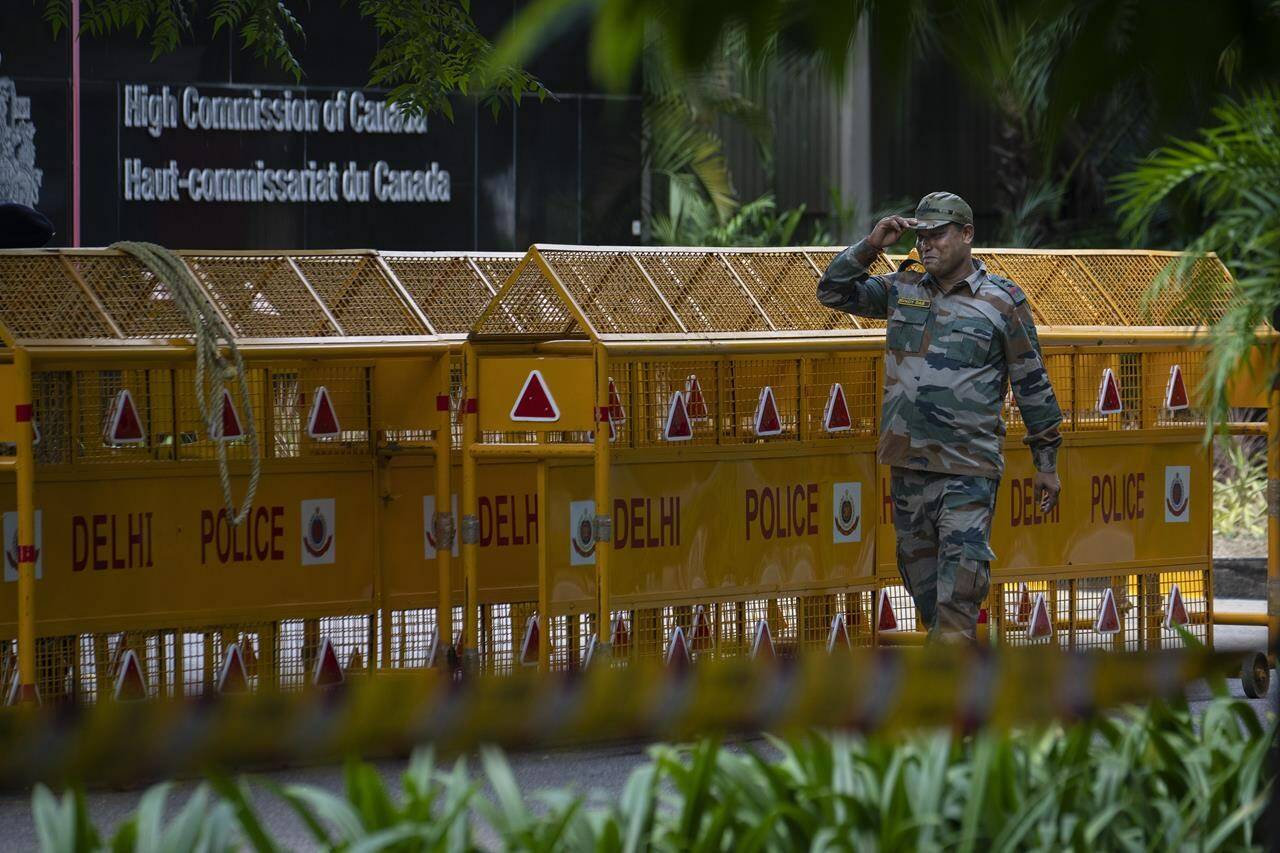India’s move to reduce the presence of Canadian diplomats in its country is “contrary to international law” and the rest of the world should be concerned about its consequences, Prime Minister Justin Trudeau said Friday.
The United States and United Kingdom are urging India to reconsider.
Foreign Affairs Minister Mélanie Joly said Thursday that Canada had removed most of its diplomatic presence from India after New Delhi threatened to strip diplomatic immunities from them and their families.
Calling it a precedent-setting threat, Joly said Canada chose to relocate 41 of its diplomats to outside India, along with their 42 dependants. There are 21 Canadian diplomats remaining in India.
READ MORE: Canada yanks diplomats from India over threat of lost immunity
On Friday, Trudeau called India’s decision to “unilaterally” revoke diplomatic immunity from most of Canada’s diplomats “a violation of the Vienna Convention governing diplomacy,” repeating the assertion by his foreign minister.
“This is them choosing to contravene a very fundamental principle of international law and diplomacy,” Trudeau said Friday at a housing announcement in Brampton, Ont.
“It is something that all countries in the world should be very worried about.”
The U.S. State Department said Friday that it’s concerned by the move.
“Resolving differences requires diplomats on the ground. We have urged the Indian government not to insist upon a reduction in Canada’s diplomatic presence,” wrote spokesman Matthew Miller.
“We expect India to uphold its obligations … including with respect to privileges and immunities enjoyed by accredited members of Canada’s diplomatic mission.”
The U.K. Foreign, Commonwealth and Development Office echoed those concerns.
“We do not agree with the decisions taken by the Indian government that have resulted in a number of Canadian diplomats departing India,” the department said in a statement.
“We expect all states to uphold their obligations under the 1961 Vienna Convention on Diplomatic Relations. The unilateral removal of the privileges and immunities that provide for the safety and security of diplomats is not consistent with the principles or the effective functioning of the Vienna Convention.”
Relations with New Delhi have hit a deep freeze since Trudeau announced on Sept.18 that Canadian intelligence services were investigating “a potential link” between India’s government and the killing of Hardeep Singh Nijjar, a Canadian Sikh leader in British Columbia.
Miller urged India “to co-operate in the ongoing Canadian investigation.”
Earlier Friday, India’s Ministry of External Affairs said its move to reduce the number of Canadian diplomats in India, who it says outnumber India’s staffing in Canada, was in line with diplomatic convention.
READ MORE: India says it’s firm on Canada reducing diplomatic staff in the country
India’s statement cited a passage from an international convention on diplomatic relations that says in the absence of agreement, a host country can require a diplomatic mission be kept within reasonable and normal limits.
“We reject any attempt to portray the implementation of parity as a violation of international norms,” the statement read.
Trudeau said Friday that India’s actions toward Canadian diplomats “has far-reaching consequences for the diplomatic world.”
“It also has very real impacts on the millions of people who travel back and forth between India, as students and family members.”
Officials said the move would slow down the processing of immigration applications, and Canada has issued a travel advisory for regions of India where it says it has been forced to reduce consular staffing.
The Canadian Press

